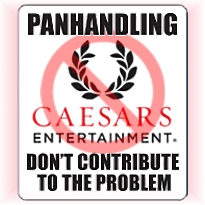 On Monday, US casino operator Caesars Entertainment paid out around $787k to 411 poker players in Atlantic City after what ordinarily would have been a winning hand triggered the ‘bad beat’ jackpot. Narong See Whited was the primary beneficiary of the payout, earning $237k after his four-nines were improbably surpassed by opponent Nick Angelakopoulos’ king-high straight flush. Angelakopoulos received $158k of the jackpot while 409 players seated at the company’s other AC poker rooms each collected $958. Caesars’ eastern division president Don Marrandino released a statement indicating that the payout was the largest of its kind since the ‘bad beat’ concept was introduced two years ago.
On Monday, US casino operator Caesars Entertainment paid out around $787k to 411 poker players in Atlantic City after what ordinarily would have been a winning hand triggered the ‘bad beat’ jackpot. Narong See Whited was the primary beneficiary of the payout, earning $237k after his four-nines were improbably surpassed by opponent Nick Angelakopoulos’ king-high straight flush. Angelakopoulos received $158k of the jackpot while 409 players seated at the company’s other AC poker rooms each collected $958. Caesars’ eastern division president Don Marrandino released a statement indicating that the payout was the largest of its kind since the ‘bad beat’ concept was introduced two years ago.
We’re sure the timing is entirely coincidental, but Caesars is looking to raise $750m via a new private debt offering – 8.5% senior secured notes that would come due in 2020. Caesars says it plans to use the three-quarters of a billion to “repay a portion of the outstanding borrowings” and to pay “related fees and expenses.” Caesars is currently staggering under the weight of nearly $20b in long-term debt, on which it pays around $1.5b in annual interest.
As if on cue, Standard & Poor’s Ratings Services lowered its outlook on Caesars from ‘stable’ to ‘negative’, citing Caesars’ recent dismal earnings report and a general softening of the gaming outlook in Las Vegas. While S&P gave a ‘2’ ranking to Caesars’ latest debt offering, it cautioned that investors’ chances of recovery in the event of a default were at the “very low end” of the 70% to 90% scale that a ‘2” ranking encompasses. The raters at Fitch were for the moment maintaining its ‘stable’ rating, but suggested Caesars’ future earnings “may not be enough to offset [its] increasingly onerous interest expense burden.” Moody’s current rating for Caesars is Caa1, indicating a borrower in “poor standing” with a “very high credit risk.”
Standard & Poor’s also revised earnings estimates at Caesars’ properties in Atlantic City, which are now expected to decline between 10% to 15% this year. Further pressure will come from Caesars’ need to refinance nearly half its total debt obligations by 2016 and “will likely face substantially higher interest costs associated with refinancing that debt.” Even worse, in the absence of significant earnings growth in 2013, Caesars “will likely burn substantial cash to meet capital expenditure needs and may be challenged to continue meeting long-term debt service obligations, including maintaining compliance with its financial covenant.” (Warning to credit card issuers: be on the lookout for a flood of applications using variations of ‘Caesar N. Tainman’ in the ‘card holder’ name field.)
Caesars has made no secret of how badly it covets the potential additional revenues a federally regulated US online poker market could provide its World Series of Poker brand. The Caesars Interactive offshoot is prepping for its online poker operator license hearing with Nevada gaming officials as we speak. But despite being the biggest spender by far (nearly $1m in Q2 2012) on lobbying efforts to bring about a federally regulated system, Caesars CEO Gary Loveman struck a despondent note in his recent post-earnings call with analysts. “You can’t legalize online gaming if Congess can’t act on anything … there are a number of pressing issues before Congress, the fiscal cliff being the most serious of these, and Congress has been unable to act even on these fundamental issues.” Which brings us to our latest conspiracy theory – is Las Vegas Sands’ chairman Sheldon Adelson’s vehement opposition to online gambling spurred at least in part by the knowledge of how badly his casino competitors need it?